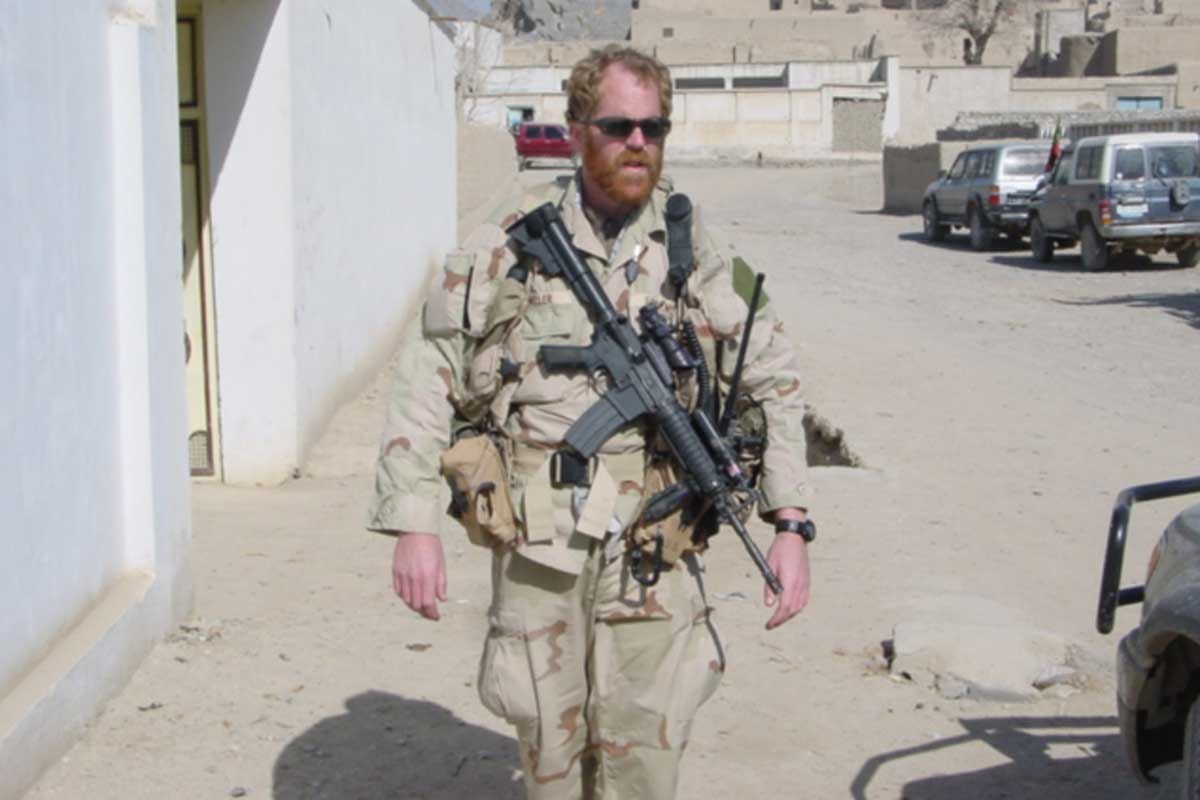Exclusive: Former Acting Secretary of Defense Chris C. Miller On Invading Afghanistan, His Time in the White House, and His Next Act
"I'm not giving up on America yet."
On the morning of Sept. 11, 2001, Chris C. Miller had just finished a run when he got in his car and turned on the radio. An announcer abruptly cut into the radio show Miller was listening to and said: "Something's happened. We have a report of a plane crashing into the World Trade Center."
Miller remembers the striking and serious nature of the announcer's tone of voice. At the time, Miller was in a Special Forces group responsible for covering the Middle East.
"By the time I walked into work into our intelligence section, they had the TV on, and we saw the second plane go into the building," he says. "I said, 'OK our world has just changed in this moment.' We knew we were going to go to war."
And it was Miller, a company commander with the 5th Special Forces Group, who helped direct the first, covert invasion of Afghanistan in 2001. A number of Green Berets from the 5th Group were sent to invade Afghanistan and defeat the Taliban — some of them on horseback — in a secret and dangerous mission, which was portrayed in the film '12 Strong.'

Miller, a 35-year-old major at the time, went on to have a long career with the military.
He participated in the 2003 Iraq invasion and completed multiple additional deployments to Iraq and Afghanistan. He then went on to become the director of the National Counterterrorism Center. In 2014, he retired from the Army, went to the Pentagon, and worked as a special operations consultant to the under secretaries of defense for Intelligence and Policy.
In November 2020, he was tapped by then-President Donald Trump to serve as the acting secretary of defense. Miller, who describes himself as non-partisan, says he received a call from Trump asking him if he wanted the job.
"I'm like, 'I don't particularly want the job, but you're not asking me,'" Miller says. "You don't go to the Oval Office and say, 'Oh no, I'm really not interested, thanks a lot.' You're not allowed to do that. You're a public servant, and I take that seriously."
The 73 days that Miller spent as the acting secretary of defense was not uneventful. On Jan. 6, rioters stormed the Capitol, and Miller told VICE that he thought there was direct "cause-and-effect" between Trump's words and what happened on that day. Miller was later criticized for the time it took the Department of Defense to deploy the National Guard.
In the conversation with The Profile, Miller rejected the criticism and defended the military response. "The full story has not been told," he says. "When the story comes out, I will stand by every decision I made because it was a direct and proper use of the Armed Forces."
He adds: "This idea that 'Poof, we'll just take the National Guard from one side of town and plop them down at the Capitol’ — no, no, no. You've got to move people, you've got to coordinate, you need to backfill them in — all this takes time."
Miller's next act? He has a book in the works, and he's also working on Boundary Channel Partners, a new company offering a range of strategic advisory and consultative services.
"I'm not giving up on America yet," Miller says. "We've got problems right now, we know that, but my friends and family wouldn't be able to tolerate me if I just walked away."
In this conversation, Miller explains what training for the Afghanistan mission entailed, how he used his experiences in the field to transition from a tactical position into a strategic one, the challenges of his role as the acting secretary of defense, and the leadership lessons he's learned along the way. (I co-hosted this conversation with my husband Anthony Pompliano, a combat veteran who served in the U.S. Army and deployed overseas in support of Operation Iraqi Freedom.)
🎧 Listen to the full interview below:
TIME STAMPS:
00:00 - September 11, 2001
05:36 - The military's reaction
13:28 - The invasion of Afghanistan
21:08 - Mental training for times of uncertainty
27:09 - What makes a great team
32:51 - Coming home from the Afghanistan mission
35:01 - Conventional tactics versus unconventional warfare
41:09 - Planning his military career
42:46 - Transition from a tactical position into a strategic one
46:21 - Becoming the Acting Secretary of Defense
54:18 - Miller's response to the storming of the Capitol
58:19 - How to develop independent thought
1:04:15 - Balancing his personal relationships with his professional aspirations
1:08:18 - The mental toll of going to war
01:15:31 - Miller's next act

